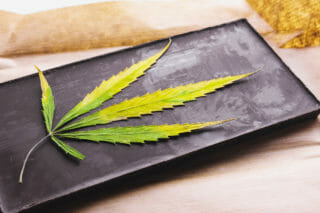
On January 3rd, according to the owner of a smoke shop in Yuma, Arizona, officials from the Food and Drug Administration (FDA) seized a variety of CBD products from the store’s shelves. The officials took fewer than fifty items and told the owner to anticipate follow-up paperwork within seven to ten business days.
According to the owner’s account, FDA officials had stopped by the shop a few days earlier and asked what products were edible and intended for humans. When those officials returned, they informed the owner that CBD cannot be sold for human consumption.
This squares with what we have written about extensively, and also with what FDA Commissioner Scott Gotlieb has stated:
[I]t’s unlawful under the FD&C Act to introduce food containing added CBD or THC into interstate commerce, or to market CBD or THC products as, or in, dietary supplements, regardless of whether the substances are hemp-derived. This is because both CBD and THC are active ingredients in FDA-approved drugs and were the subject of substantial clinical investigations before they were marketed as foods or dietary supplements. Under the FD&C Act, it’s illegal to introduce drug ingredients like these into the food supply, or to market them as dietary supplements. This is a requirement that we apply across the board to food products that contain substances that are active ingredients in any drug.”
Gottlieb also made clear that things like claiming CBD or cannabis products cure diseases prior to undergoing FDA approval are not lawful, and that the FDA will not hesitate to warn consumers and initiate enforcement actions against CBD companies. The enforcement against the Yuma store seems to indicate that those enforcement actions have begun in earnest.
There seems to be a good amount of misunderstanding about how the passage of the Agriculture Improvement Act of 2018 (or the “2018 Farm Bill”) affects the legality of selling industrial hemp-derived CBD products. But to reiterate, nothing in the 2018 Farm Bill alters the FDA’s position on CBD pursuant to the Federal Food, Drug, and Cosmetic Act (FDCA). Here are some additional highlights from that statement:
- The FDA will continue to enforce the law, including the FDCA, in an effort to protect patients, the public, and to promote the agency’s goals of promoting public health;
- Products containing cannabis or cannabis-derived compounds, including CBD, will be subject to the same regulations and requirements as other non-cannabis FDA-regulated products;
- Hemp or hemp-derived CBD products that are “marketed with a claim of therapeutic benefit, or with any other disease claim” must be approved by the FDA before being introduced into interstate commerce;
- Hemp or hemp-derived CBD products marketed “for use in the diagnosis, cure, mitigation, treatment, or prevention of diseases” are considered drugs and must be approved by the FDA before they are marketed for sale in the United States; and
- It is “unlawful under the FDCA to introduce food containing added CBD or THC into interstate commerce, or to market CBD or THC products as, or in, dietary supplements, regardless of whether the substances are hemp-derived.”
It remains to be seen whether the FDA will introduce new regulations pertaining to the sale of hemp-derived CBD products intended for human consumption. For now, the agency has indicated that its position on CBD products is clear. We’ll be watching closely to see if this enforcement action constitutes a ramp-up of enforcement against CBD companies nationwide.























